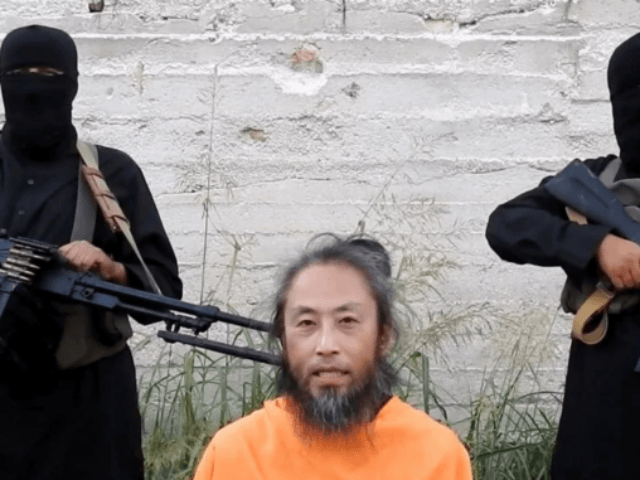A man claiming to be a Japanese journalist kidnapped by Al-Qaeda over three years ago appeared in a video Wednesday begging for help from his government after years in captivity.
Surrounded by two armed men in black while sporting a large beard and wearing an orange jumpsuit, the man, believed to be Japanese citizen Jumpei Yasuda, uses a different name and claims to be South Korean as he pleads for help to secure his release.
“My name is Umar. I am South Korean. Today’s date is July 25, 2018. I am in a terrible situation. Please help me immediately,” he pleads in the video.
In a press conference on Wednesday, Chief Cabinet Secretary Yoshihide Suga said that they would make the “utmost efforts” to secure Yasuda’s safety, while another official confirmed that he holds Japanese nationality.
“It is the government’s prime responsibility to protect Japanese, and we are making the utmost efforts, using various information networks,” he said, before declining to provide further comment.
According to the Japan Times, Yasuda is being held by an arm of Jabhat Fatah al-Sham, an arm of al-Qaeda formerly known as Jabhat al-Nusra (the Nusra Front), who are still seeking a $10 million ransom for his release.
Yasuda began reporting on the Middle East back in the early 2000s. He was previously taken hostage in Iraq in 2004 alongside three other Japanese journalists but later freed after officials negotiated his release.
In 2015, Yasuda was again taken hostage in Syria while reporting on the case of fellow journalist Kenji Goto, who was also taken hostage and later killed by Islamic State terrorists. Friends and family lost contact with Yasuda on June 23, and he has since appeared in occasional photos and videos where is coerced into promoting jihadist propaganda.
In a video posted in June 2016, he read out the following ominous warning to his countrymen: “Where you are sitting, wherever you are, in a dark room, somewhere there is pain, there is still more. No answering, no one responding. You are invisible. You do not exist. No one cares about you.” His appearance has grown progressively more disheveled over time.
The kidnapping of journalists and other foreigners is a common strategy for jihadist militants, who often negotiate their release in return for money and other concessions. They are often forced to participate in propaganda videos where they pledge allegiance to the caliphate and criticize their homelands.
Follow Ben Kew on Facebook, Twitter at @ben_kew, or email him at bkew@breitbart.com.

COMMENTS
Please let us know if you're having issues with commenting.